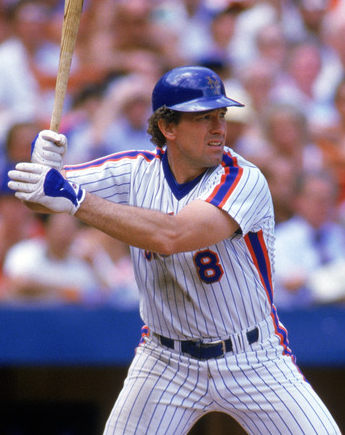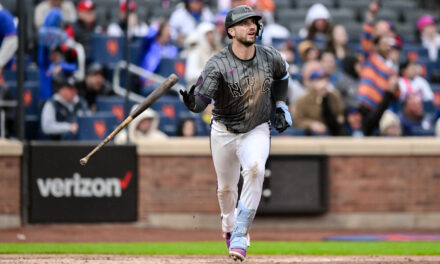As another year comes to a close, lets pause and remember a few of the former Mets players who passed away in 2012, and give them one last tribute before the new year.

Joe Ginsberg, C
Joe Ginsberg had a very successful major league career as a solid defensive catcher with the Cleveland Indians, Kansas City A’s, Baltimore Orioles, and Chicago White Sox. Ginsberg was behind the plate when Virgil Trucks tossed his no-hitter on May 15, 1952 – a 1-0 victory against the Washington Senators. But in the final act to his career, Ginsberg was also one of the original Mets in 1962, a tenure that lasted all of two games and five at-bats. Still, he recalls what it was like to be among the first players ever to wear a Mets uniform in When Baseball Was Still King. “When they were trying to get a team together, they didn’t know how to go. Shall we go with some young players, some strong legs and some strong arms, and the players with no names, or should we go with the name players and draw a lot of people whether we win or lose? So they decided to go with the older players that had names in the big leagues. We outdrew the Yankees that year. We finished last, naturally, because our skills had diminished. Casey just couldn’t spur us, like he could the Yankees, because we were all thirty-six and thirty-seven years old, and older. But we enjoyed ourselves.”

Harry Parker, RHP
Parker was acquired by the Mets after the 1971 season as part of the eight-player deal that sent 1969 World Series hero Art Shamsky to the St. Louis Cardinals. The right-handed reliever would play a prominent role for the Mets in 1973 when he went 8-4 with a 3.35 ERA in 131 innings pitched. He was an integral part of the Mets’ pennant run that season, and as some of you may remember, it was Parker. who gave up the deciding run in the 11th inning of Game 3 of the World Series, when Mets catcher Jerry Grote dropped the third strike on Angel Mangual. This allowed Ted Kubiak to reach second base and score on the next at-bat. Arm injuries plagued Parker towards the end of his career, prompting a return to the Cardinals in 1975 after the Mets placed him on waivers in August. Parker never fulfilled the incredible promise and greatness scouts predicted for him, but for one season he gave Tug and the rest of us a reason to believe.

Bob Myrick, LHP
The lefty reliever got his call to the majors in 1976 thanks to a hot season in Triple-A Tidewater, where he averaged almost one strikeout per inning. Mets manager Joe Frazier, who coached Myrick the year before, summoned his prized reliever to the big leagues. Myrick’s first major league appearance was brief, but effective. Appearing in relief of Craig Swan, Myrick induced St. Louis Cardinals third baseman Hector Cruz to ground out on his first pitch in the major leagues. One pitch, one out, and his work was done for the evening. Myrick would pitch three seasons for the Mets from 1976-1978, compiling a 3-6 record with a 3.48 ERA in 82 career games. He was traded in 1979 with Mike Bruhert to the Texas Rangers for Dock Ellis.

Eddie Yost, 3B
The Brooklyn native was aptly called “The Walking Man” after a career the saw him lead the league in walks six times and averaging 124 walks per season. Yost had an impressive 18 year career batting .254 and posting an incredible .394 on-base percentage thanks to his 1,614 walks. After retiring as a player in 1962, Yost turned to coaching and joined Gil Hodges who was managing the Washington Senators at the time. He later served as the Mets’ third-base coach for nine seasons beginning in 1968, and won a World Series ring with the club in 1969. Yost was born in Brooklyn, grew up in Ozone Park, and went to John Adams High School in Queens. He played baseball and basketball at NYU. He will always be remembered as one of the best third base coaches the Mets ever had.

Gary Carter, C
Since the day of his passing, we’ve honored Gary with his memorial patch on our banner. His intensity as a player and his unwavering spirit was the driving force of that powerful 1986 Mets team that won the World Series. Just as symbolic as that Mookie Wilson roller up the first base line, was Carter emphatically shouting that he would not make the last f***ing out. That’s what ignited that inning, that game, and that series win. What I’ll remember most is that smile and how he never grew tired of just talking about the game – a game he loved and that loved him right back. No need for me to recite his many great achievements and accolades, Cooperstown has already done a good job of that. Instead I’ll close by saying Rest in Peace, Gary, your undying spirit continues on at Mets Merized Online.
If you have a minute, take a moment of silence to remember all the Mets, great and small, that we’ve lost in 2012.














